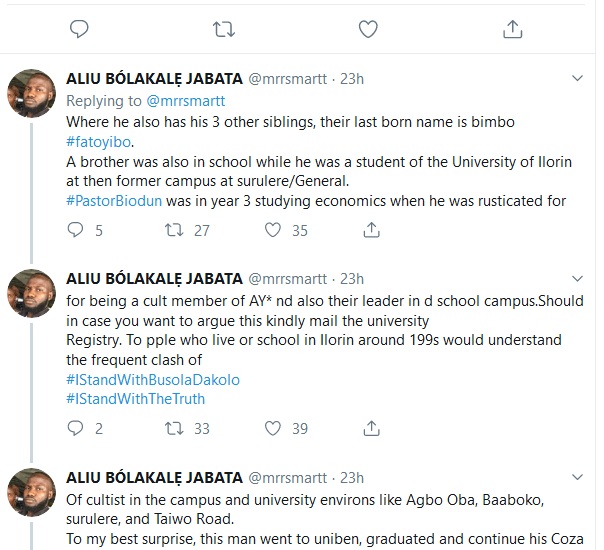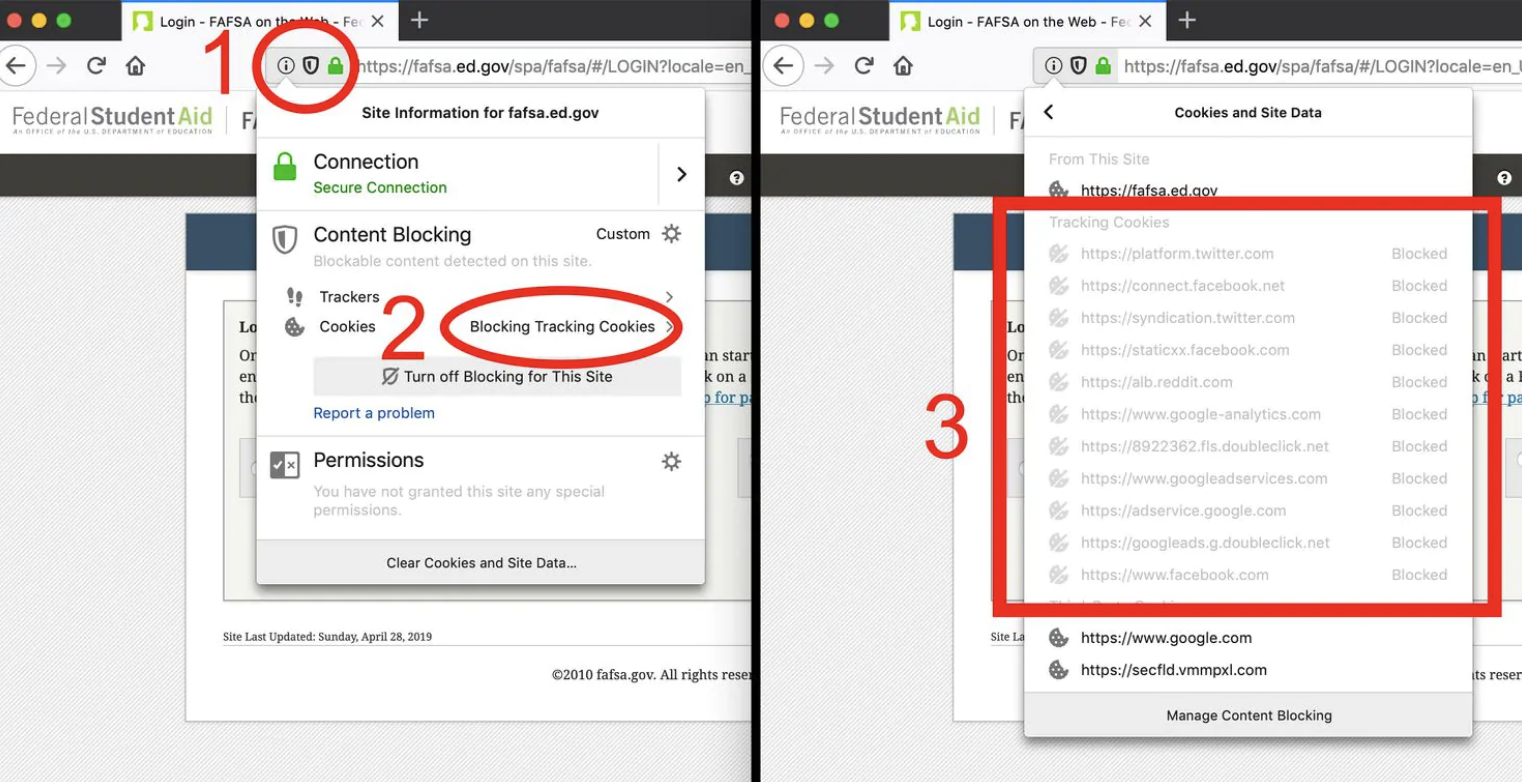

Michael Abiodun
Almost two months since he was sworn in for a second term as President, Muhammadu Buhari has failed to submit his ministerial list.

President Muhammadu Buhari
Nigeria's President Muhammadu Buhari has been given till Friday to submit the list of ministerial nominees for screening, failure of which the red chamber will proceed on its two-month annual recess, according to a report by Punch.
Following its calendar, the National Assembly is meant to go on its annual recess on July 26 and resume on September 26.
Buhari, who won election in February and was sworn in on May 29, has continued to delay the submission of the ministerial list, arguing that he will need to take his time to appoint the people he knows.
The Chairman, Senate ad hoc Committee on Media and Public Affairs Affairs, Senator Adedayo Adeyeye, in an exclusive interview with Sunday PUNCH on Saturday night, said the red chamber would proceed on its annual two-month recess this week if the Senate did not get the ministerial list by Friday.
He said, “If the list does not come before Friday, the Senate will proceed on its annual recess. We are not giving the president any ultimatum. The schedule of the Senate will go ahead if the Senate does not receive the list. The list is the only thing that can hold us back.”
Adeyeye said the President was at liberty to send the list whenever he pleased and that the Senate also had a duty to consider it in the overriding national interest.
He added, “However, any time they submit the list, we will consider it. It is not our responsibility to put pressure on the President. We can be recalled whenever the list is submitted even if we are already on recess, in the overriding national interest.’’
Corroborating this position, the Minority Leader of the Senate, Enyinnaya Abaribe, told Sunday PUNCH that the Senate would go on its annual recess on schedule.
Sunday PUNCH had asked him if the Senate would still postpone its annual recess despite the fact that the President had not submitted the ministerial nominees’ list.
Abaribe said, “The Senate will keep to its schedule.”
Findings by Sunday PUNCH revealed that the upper legislative chamber would require at least two weeks to screen the 36 ministerial nominees being expected from the President.
Meanwhile, investigations showed that members of the red chamber were divided over the proposal by the President of the Senate, Ahmad Lawan, that members might have to postpone their recess to treat Buhari’s lists.
Some senators, who spoke with one of our correspondents off the record, said the idea of postponing the recess was not yet a resolution of the House.
Lawan had two Wednesdays ago said that the President could most likely submit the ministerial list for consideration and approval of the red chamber before the end of that week.
He had said that the executive arm of government was working hard to ensure that the list was ready early enough before the senators proceed on their annual two -month recess.
The President of the Senate was then reacting to a point of order raised by Senator Bassey Akpan to the effect that the delay in the submission of the list could affect the holidays of the senators.
But Lawan said his colleagues had expressed readiness to sacrifice their time to screen the nominees when forwarded to the upper legislative chamber.
Lawan said, “This is to inform this Senate that the Executive arm of government is working very hard to get the list of ministerial nominees to the Senate.
“I can imagine that before this (penultimate) week runs out, we could get the list.
“I want to assure you that once we get the list, every senator here has shown and expressed the desire to stay long enough to screen and confirm ministerial nominees in the interest of this country for the country to be taken to the next level.”
Akpan had earlier stressed the need for Lawan to urge President Buhari to forward the ministerial list on time as the National Assembly would soon embark on annual recess.
This, he explained, was to avoid putting lawmakers under undue pressure, especially if the President decided to forward the list on the eve of their recess.
He had said, “We understand the passion of Mr President to consolidate on the gains that he has so far attained.
“If we are going on this long vacation in two weeks (July 26), and by now, we have not received the ministerial nominees, it means we will have to put ourselves under intense pressure.
‘‘It is our collective responsibility that we must support Mr President to succeed.
“I am just bringing to the attention of Mr Senate President that there is a need for you to please urge Mr President to send in the list of ministerial nominees so that the Senate can confirm them immediately.”
Meanwhile, other senators who corroborated the position of Akpan in separate chats with Sunday PUNCH on condition of anonymity, said they were already looking forward to the long vacation.
A senator from the South-East geopolitical zone said, “I have planned to travel and all arrangements have been perfected.
“It is not yet a resolution of the Senate that we should postpone our holiday to screen the nominees.
“I’m not even sure there will be a need for the postponement because the President does not appear to be in a hurry to send the list.’’
The Senior Special Assistant to the President on National Assembly Matters (Senate), Senator Ita Enang, was asked whether Buhari would forward the list of ministerial nominees to the National Assembly before Thursday, next week, but he refused to comment.
“I will not be able to speak and it is not wise for me to speak. That is my response,” he stated.
Published in Politics
Tagged under

Jackson A. Smith, University of Waterloo and Dillon Thomas Browne, University of Waterloo
Luke’s parents gave him a cell phone last year for his 10th birthday. Since then, the amount of time he spends playing video games on and off his phone has increased.
Luke has gained weight and recently started refusing to play on his sports team after school, preferring to stay home and interact with peers online. His grades at school have also declined. Recently, Luke and his younger brother got into a physical fight after Luke’s brother “killed” his character in a first-person shooter game.
With summer break in full swing, parents like Luke’s are concerned about their children spending more and more time on their devices. They are worried about how this might affect their child’s health. They wonder when (and if) they should draw the line. They often ask us, as psychology researchers and clinicians, “is my child addicted to screens?”
A few important considerations emerge in response to this question.
Addictions are not limited to drugs
The term addiction is often characterized by a recurring desire to continue to take a substance despite harmful consequences.
While the term addiction has traditionally been used in relation to substances such as alcohol and drugs, non-substance addictions — including behavioural addictions such as sex, gambling and “video gaming” — are now recognized.

When someone is addicted, the source of their addiction becomes their priority. Other important life activities (for instance sleeping, eating and bathing) are neglected. Interests such as playing soccer or spending time with family and friends fall by the wayside.
And when the source of the addiction is cut off, this triggers intense, negative, emotional reactions.
A teenager can have an addiction
Typically, behavioural addictions do not apply to children under the age of 12 years. This is because the principle of addiction implies two important factors. First, the person has insight into the problematic nature of their use, requiring a sophisticated capacity for self-reflection. Second, the person must have the cognitive maturity and capacity to be expected to inhibit their behavioural responses.
Stated differently, we would expect young children to have meltdowns in response to turning off a device and thus would not describe this as indicative of addiction.
However, if a young person with more developed capacity for reflection and self-regulation responded the same way, such as a 16-year-old, it means something very different.
Screen addiction is complex
According to the World Health Organization and many independent clinical scientists, human beings can be addicted to screens. “Gaming disorder” was introduced into the 11th revision of the International Classification of Diseases, in 2018.
Other prominent researchers have argued that digital addiction is a myth. However, as clinicians it is our ethical obligation to take parents’ and children’s concerns seriously when they present at the clinic with worries about problematic media use.
The issue of being addicted to screens is complicated. First, the term “addiction” is loaded and is off-putting for some. There are also many sources of screens (smartphone, tablet, laptop, television), many types of media (social media, TV shows, games) and many ways to use them (active or passive, solitary or social).
Addiction is also an extreme form of dependence and the term should not be used lightly. A comprehensive understanding of an individual’s context, behaviours and the consequences of their actions is needed.
Research into what makes some people more susceptible to addictions shows there are many possible pathways, including genetic and socio-relational factors such as stress. It is important to remember, however, that an increased risk for addiction does not mean that one is destined to become addicted. Many individual, social and environmental factors can protect an individual from developing an addiction.
Recommended screen-time limits
The Canadian Paediatric Society recently published guidelines for promoting healthy screen use. Whereas their 2017 guidelines focus on screen time for children under the age of five, these new 2019 guidelines address this issue in school-aged children and adolescents.
The following limits on screen time are recommended for young children:
- No screen time for children younger than two years (except for video-calling with friends and family).
- Less than one hour per day of routine or regular screen time for children two to five years old.
- Avoid screens for at least one hour before bedtime.
- Maintain daily “screen-free” times, especially for family meals and reading books.

Research on the impacts of screen time in older children and adolescents is still developing. Therefore, the guidelines for school-aged children focus less on time limits and more on curating healthier engagement with digital media, but low to moderate screen time (under four hours per day) is encouraged.
What you can do as a parent
The Canadian Paediatric Society’s 2019 guidelines include helpful recommendations for parents:
1. Manage screen use. You can achieve this by creating a family media plan with individualized time and content limits and learning about parental controls and privacy settings. Other tips include co-viewing and talking about content with your children, discouraging use of multiple devices at once, obtaining all passwords and log-in information and discussing appropriate online behaviours.
2. Encourage meaningful screen use. This involves prioritizing daily (non-screen) routines over screen use and helping children and teens to choose age-appropriate content and to recognize problematic content or behaviours. You can become part of your children’s media lives and advocate for schools and child-care programs to consider developing their own plan for digital literacy and screen use.
3. Model healthy screen use. Review your own media habits and plan time for alternative play and activities. Encourage daily “screen-free” times. Turn off your own screens when they are not in use (including background TV). Avoid screens at least one hour before bedtime and discourage recreational screen use in bedrooms.
4. Monitor for signs of problematic use. These signs include: complaints about being bored or unhappy without access to technology and oppositional behaviour in response to screen-time limits. Screen use that interferes with sleep, school, face-to-face interactions, offline play and physical activities is also problematic, as are negative emotions following online interactions.
Integrate screens mindfully
We are fortunate to live in a time of such rapid technological innovation. These technologies open up tremendous opportunities for most (if not all) domains of life, including new and different opportunities for families to connect, engage and bond.
But we do need to be mindful of how we integrate these technologies into our lives and of the consequences they have on ourselves, our relationships and our children.
If you are concerned about digital media use in your family, we recommend that you develop a family media plan. You can also see your family physician or a clinical psychologist to discuss your concerns.
![]()
Jackson A. Smith, Graduate Student in Clinical Psychology & Research Assistant in the Whole Family Lab, University of Waterloo and Dillon Thomas Browne, Assistant Professor, University of Waterloo
This article is republished from The Conversation under a Creative Commons license. Read the original article.
Published in Technology
Tagged under

Pastor Biodun Fatoyinbo
By Tayo Ogunbiyi
Nigeria is a nation of unending drama. Drama is what keeps us going as a people. Insecurity, unemployment, corruption, decayed infrastructure, ethnicity, tribalism are some of our recurring challenges. But we have learnt to live with them. Drama gives us a huge comic relief from our many troubles.
For some time, herders/ farmers clashes have continued to pose serious security threats in the country. In the last few months, the crisis, which was initially widespread in the northern part of the country, is curiously heading southward like a wild fire.
In a bid to stem the tide, the Federal Government, FG, came up with the Rural Grazing Area (RUGA) settlements plan for herdsmen. According to the FG, the scheme is meant to curb open grazing of animals as it seeks to settle animal farmers, not just cattle herders, in an organized place with the provision of basic and adequate amenities such as schools, hospitals, road networks, vet clinics, markets and so on.
However, the Ruga scheme was widely criticized by a cross section of Nigerians. Some state governors insisted that there is no land for ranches and cattle in their domains while several socio-cultural groups and traditional authorities openly opposed the initiative.
The last straw, however, seemed to be a comment made by Professor Wole Soyinka on the perceived danger of Ruga. A few days after the Nobel Laureate made the Ruga remarks, the FG announced that it has suspended the controversial programme.
While addressing State House Correspondents on the suspension, Ebonyi State Governor, Dave Umahi, disclosed that the scheme was not consistent with the National Livestock Transformational Plan (NTLP). He insisted that the NLTP approved by the National Economic Council (NEC) is a voluntary programme interested states.
Meanwhile, in the middle of the Ruga hullabaloo, the social media was equally buzzing with yet another thriller. Wife of popular Nigerian musician, Busola Dakolo, had accused the Senior Pastor of Commonwealth of Zion Assembly (COZA), Pastor Biodun Fatoyinbo, of rape.
According to Mrs. Dakolo, Pastor Fatoyinbo raped her twice on same week. She alleged the pastor first raped her at her parents’ residence and at another time in an isolated road path. She alleged the incidence occurred before she turned 18, and added that she lost her virginity in the process.
Trust Nigerians, they quickly shoved the Ruga controversy to the background, and pronto COZA became the trendy news. In the midst of it all, Pastor Fatoyinbo vehemently denied raping Bisola Dakolo or any other persons for that matter. In a post on his Instagram page, the pastor declared: “I have never in my life raped anybody even as an unbeliever and I am absolutely innocent of this”.
Well, while many analysts seem to agree that Fatoyinbo might be right in his claim, they, nevertheless, opine it is possible he had consensual sex with his accuser. This is not the first time the Abuja based Pastor will be immersed in sex scandals. In 2013, Ese Walter, a member of his church alleged she had a sexual relationship with the pastor in London. Just a few days ago, another lady accused the pastor of rape. What will be the outcome of this new drama series? Well, time will tell.
What is, however, no in doubt is that we are in a season of drama. Senator representing Adamawa North, Mr. Elisha Abbo, is in the center of yet another blockbuster. In a now viral CCTV footage clips, Abbo was alleged to have assaulted a shop attendant at a sex toy shop in Abuja last May. Details of the gory event were published in Premium Times and it prompted national indignation.
Initially, Abbo’s wife denied the allegation, saying that her husband, a ‘distinguished’ Senator of the Federal Republic is too decent to stoop so low. However, the Senator was to later rubbish her wife’s claim when he opened up to committing the alleged crime.
In an emotion laden press conference (which could be titled: Abbo Wept), the Senator apologized for his heinous conduct. He equally apologized to his victim and her family.
As we were taught in Didactic Literature, for the discerning, we could learn vital lessons from our current national dramas. The first is that we cannot wish away our national problems. As much as people might disdain the FG Ruga plan, the fact remains that we still have a monster to contend with in the herdsmen/farmers mess.
If we choose to sweep it under the carpet as we often always do, we are merely postponing the evil day. On its part, the FG must consult widely in order to find a generally acceptable solution to this issue. We cannot continue to witness unnecessary killings of our compatriots in avoidable circumstances.
The COZA affair is a reflection of the moral decadence in our society. While randy charges against the trendy pastor remain mere allegation, it is a wakeup call to clerics who actually indulge in despicable sexual acts that their sins will, one day, catch up with them.
As for Abbo, as bad as his act was, for me, the apology is disarming enough. I don’t really care whatever happens to the case eventually, his public apology demonstrates penitence. With the resources at his disposal, he could have gone to court, hire a crafty lawyer that would use legal technicalities to drag the case for long, but he chose to follow a more honorable path. He said sorry. In our clime, it is not usual to see ‘powerful’ figures make an apology. Though Abbo acted naughty, he is also a lesson in humility.
-Ogunbiyi is of the Ministry of Information & Strategy, Alausa, Ikeja
Published in Opinion
Tagged under
A Nigerian computer programmer has reportedly killed himself in Lagos state after securing a Canadian visa.
According to Punch Metro, the family of Muyiwa Olushola is in mourning after the computer programmer allegedly committed suicide by taking a drink suspected to be laced with an insecticide, Sniper, at Mosadolorun in the Iba Local Council Development Area of Lagos State.
It was gathered from neighbours that the deceased’s mother had gone for a vigil, leaving him at home with his father, Segun, and sister, Tosin, when he suddenly started screaming for help around midnight, but efforts to immediately gain access to his room proved abortive.
Eventually, the door to the room was broken and upon entry, Muyiwa was seen lying unconsciously on the floor with a foamy substance coming out of his mouth.
The 33-year-old was reportedly rushed to hospital for medical aid but gave up the ghost on the way.
Investigation was said to have revealed that the deceased allegedly consumed a drink suspected to have been laced with Sniper, as a bottle of an alcoholic drink, two bottles of the insecticide and a cup were found on the floor of his room.
When our correspondent visited the area on Tuesday, it was observed that the house, where the deceased lived with his parents and sibling had been locked.
One of the neighbours, who did not want to be identified, said the scream of Muyiwa’s father and his repeated banging on the door alerted her and others to the incident, adding that it took about an hour before anybody could gain access to the deceased’s room.
The neighbour said, “Around midnight on July 1, I heard Muyiwa’s father screaming his name and asking him to open the door, so I quickly alerted my husband, who calmed me down saying the noise could be due to a minor issue.
“But when the man continued screaming and banging on the door, we had to rush out to find out what was happening, and when we got to their apartment, we saw the father trying to force his way into Muyiwa’s room.
“The sister, Tosin, said they were inside when they suddenly heard the deceased screaming for help, but they could not enter his room, because he had bolted it from behind. It took over an hour before the door was opened and we saw Muyiwa lying helplessly on the floor and vomiting a foamy substance. We also saw an alcoholic drink, two bottles of Sniper and a cup. From what we gathered, that was the mixture he drank.”
A resident of the area, who identified himself simply as Kamoru, said Muyiwa’s death could be linked to depression, adding that the incident had prompted his family to temporarily relocate to another location.
Kamoru stated, “Immediately the family members saw him on the floor, they quickly rushed him to a private hospital around Iba, but the doctor on duty referred them to the Igando General Hospital. They were on the way to hospital when he gave up.
“I heard that he did not eat the food they gave him the previous day. I think he was depressed because he had been under a lot of pressure at home.”
A close friend of the deceased, Babajide Adekunle, said Muyiwa had just been granted a Canadian visa and was scheduled to travel in October before his death.
Adekunle said, “He went to Cyprus for his master’s and obtained a visa to travel to Canada recently after being denied on two previous attempts. We learnt that he was supposed to travel in October; we are really unhappy that he took that kind of decision. He told us that his parents had been frustrating him at home and he decided to leave the house, but his mother disagreed with the idea.
“He had even rented an apartment, but instead, the parents suggested that he should stay in another house that they built. They were overprotective of him, because he was their only surviving son after his younger brother, Seun, died some years ago. Now, he is gone and they are left with only Tosin. May God give them the fortitude to bear this loss.”
Efforts made by our correspondent to get the Lagos State Police Public Relations Officer, Bala Elkana, to react to the incident, proved abortive as he did not pick several calls made to his telephone line, while a text message sent to him had not been replied as of the time of filing this report.
Published in Newsmakers
Tagged under
As the debate over COZA Pastor, Biodun Fatoyinbo's alleged rape case continues, it has been revealed that he was a former cultist.

COZA Pastor Biodun Fatoyinbo
A media practitioner, Aliu Bolakale has revealed that the embattled COZA Pastor, Biodun Fatoyinbo was a cultist at the University of Ilorin, UNILORIN.
Aliu who claims to know Biodun alleged that Fatoyinbo was reportedly rusticated from the University when he was in 300 level over his alleged involvement in cult activities.
He then claimed that the pastor was studying Economics at the school before he was rusticated. He claimed that Fatoyinbo also had three other siblings in the school.
A brother was also in school while he was a student of the University of Ilorin at then former campus at surulere/General.
Pastor Biodun was in Year 3 when he was rusticated for for being a cult member of AY* and also their leader in the school campus.
See what he wrote below:

As the debate over COZA Pastor, Biodun Fatoyinbo's alleged rape case continues, it has been revealed that he was a former cultist.

COZA Pastor Biodun Fatoyinbo
A media practitioner, Aliu Bolakale has revealed that the embattled COZA Pastor, Biodun Fatoyinbo was a cultist at the University of Ilorin, UNILORIN.
Aliu who claims to know Biodun alleged that Fatoyinbo was reportedly rusticated from the University when he was in 300 level over his alleged involvement in cult activities.
He then claimed that the pastor was studying Economics at the school before he was rusticated. He claimed that Fatoyinbo also had three other siblings in the school.
A brother was also in school while he was a student of the University of Ilorin at then former campus at surulere/General.
Pastor Biodun was in Year 3 when he was rusticated for for being a cult member of AY* and also their leader in the school campus.
See what he wrote below:

Published in Newsmakers
Tagged under
You open your browser to look at the Web. Do you know who is looking back at you?
Over a recent week of Web surfing, I peered under the hood of Google Chrome and found it brought along a few thousand friends. Shopping, news and even government sites quietly tagged my browser to let ad and data companies ride shotgun while I clicked around the Web.
This was made possible by the Web's biggest snoop of all: Google. Seen from the inside, its Chrome browser looks a lot like surveillance software.
Lately I've been investigating the secret life of my data, running experiments to see what technology really gets up to under the cover of privacy policies that nobody reads. It turns out, having the world's biggest advertising company make the most popular Web browser was about as smart as letting kids run a candy shop.
It made me decide to ditch Chrome for a new version of nonprofit Mozilla's Firefox, which has default privacy protections. Switching involved less inconvenience than you might imagine.
My tests of Chrome vs. Firefox unearthed a personal data caper of absurd proportions. In a week of Web surfing on my desktop, I discovered 11,189 requests for tracker "cookies" that Chrome would have ushered right onto my computer but were automatically blocked by Firefox. These little files are the hooks that data firms, including Google itself, use to follow what websites you visit so they can build profiles of your interests, income and personality.
Chrome welcomed trackers even at websites you would think would be private. I watched Aetna and the Federal Student Aid website set cookies for Facebook and Google. They surreptitiously told the data giants every time I pulled up the insurance and loan service's log-in pages.
And that's not the half of it.
Look in the upper right corner of your Chrome browser. See a picture or a name in the circle? If so, you're logged in to the browser, and Google might be tapping into your Web activity to target ads. Don't recall signing in? I didn't, either. Chrome recently started doing that automatically when you use Gmail.
Chrome is even sneakier on your phone. If you use Android, Chrome sends Google your location every time you conduct a search. (If you turn off location sharing it still sends your coordinates out, just with less accuracy.)
Firefox isn't perfect — it still defaults searches to Google and permits some other tracking. But it doesn't share browsing data with Mozilla, which isn't in the data-collection business.
At a minimum, Web snooping can be annoying. Cookies are how a pair of pants you look at in one site end up following you around in ads elsewhere. More fundamentally, your Web history — like the color of your underpants — ain't nobody's business but your own. Letting anyone collect that data leaves it ripe for abuse by bullies, spies and hackers.
Google's product managers told me in an interview that Chrome prioritizes privacy choices and controls, and they're working on new ones for cookies. But they also said they have to get the right balance with a "healthy Web ecosystem" (read: ad business).
Firefox's product managers told me they don't see privacy as an "option" relegated to controls. They've launched a war on surveillance, starting this month with "enhanced tracking protection" that blocks nosy cookies by default on new Firefox installations. But to succeed, first Firefox has to persuade people to care enough to overcome the inertia of switching.
It's a tale of two browsers — and the diverging interests of the companies that make them.
 (Geoffrey Fowler/The Washington Post)
(Geoffrey Fowler/The Washington Post)
The cookie fight
A decade ago, Chrome and Firefox were taking on Microsoft's lumbering giant Internet Explorer. The upstart Chrome solved real problems for consumers, making the Web safer and faster. Today it dominates more than half the market.
Lately, however, many of us have realized that our privacy is also a major concern on the Web — and Chrome's interests no longer always seem aligned with our own.
That's most visible in the fight over cookies. These code snippets can do helpful things, like remembering the contents of your shopping cart. But now many cookies belong to data companies, which use them to tag your browser so they can follow your path like crumbs in the proverbial forest.
They're everywhere — one study found third-party tracking cookies on 92 percent of websites. The Washington Post website has about 40 tracker cookies, average for a news site, which the company said in a statement are used to deliver better-targeted ads and track ad performance.
You'll also find them on sites without ads: Both Aetna and the FSA service said the cookies on their sites help measure their own external marketing campaigns.
The blame for this mess belongs to the entire advertising, publishing and tech industries. But what responsibility does a browser have in protecting us from code that isn't doing much more than spying?
 (Geoffrey Fowler/The Washington Post)
(Geoffrey Fowler/The Washington Post)
In 2015, Mozilla debuted a version of Firefox that included anti-tracking tech, turned on only in its "private" browsing mode. After years of testing and tweaking, that's what it activated this month on all websites. This isn't about blocking ads — those still come through. Rather, Firefox is parsing cookies to decide which ones to keep for critical site functions and which ones to block for spying.
Apple's Safari browser, used on iPhones, also began applying "intelligent tracking protection" to cookies in 2017, using an algorithm to decide which ones were bad.
Chrome, so far, remains open to all cookies by default. Last month, Google announced a new effort to force third-party cookies to better self-identify, and said we can expect new controls for them after it rolls out. But it wouldn't offer a timeline or say whether it would default to stopping trackers.
I'm not holding my breath. Google itself, through its Doubleclick and other ad businesses, is the No. 1 cookie maker — the Mrs. Fields of the Web. It's hard to imagine Chrome ever cutting off Google's moneymaker.
"Cookies play a role in user privacy, but a narrow focus on cookies obscures the broader privacy discussion because it's just one way in which users can be tracked across sites," said Ben Galbraith, Chrome's director of product management. "This is a complex problem, and simple, blunt cookie blocking solutions force tracking into more opaque practices."
There are other tracking techniques — and the privacy arms race will get harder. But saying things are too complicated is also a way of not doing anything.
"Our viewpoint is to deal with the biggest problem first, but anticipate where the ecosystem will shift and work on protecting against those things as well," said Peter Dolanjski, Firefox's product lead.
Both Google and Mozilla said they're working on fighting "fingerprinting," a way to sniff out other markers in your computer. Firefox is already testing its capabilities and plans to activate them soon.
Making the switch
Choosing a browser is no longer just about speed and convenience — it's also about data defaults.
It's true that Google usually obtains consent before gathering data, and offers a lot of knobs you can adjust to opt out of tracking and targeted advertising. But its controls often feel like a shell game that results in us sharing more personal data.
I felt hoodwinked when Google quietly began signing Gmail users into Chrome last fall. Google says the Chrome shift didn't cause anybody's browsing history to be "synced" unless they specifically opted in — but I found mine was being sent to Google and don't recall ever asking for extra surveillance. (You can turn off the Gmail auto-login by searching "Gmail" in Chrome settings and switching off "Allow Chrome sign-in.")
After the sign-in shift, Johns Hopkins associate professor Matthew Green made waves in the computer science world when he blogged he was done with Chrome. "I lost faith," he told me. "It only takes a few tiny changes to make it very privacy unfriendly."
 (Geoffrey Fowler/The Washington Post)
(Geoffrey Fowler/The Washington Post)
There are ways to defang Chrome, which is much more complicated than just using "Incognito Mode." But it's much easier to switch to a browser not owned by an advertising company.
Like Green, I've chosen Firefox, which works across phones, tablets, PCs and Macs. Apple's Safari is also a good option on Macs, iPhones and iPads, and the niche Brave browser goes even further in trying to jam the ad-tech industry.
What does switching to Firefox cost you? It's free, and downloading a different browser is much simpler than changing phones.
In 2017, Mozilla launched a new version of Firefox called Quantum that made it considerably faster. In my tests, it has felt almost as fast as Chrome, though benchmark tests have found it can be slower in some contexts. Firefox says it's better about managing memory if you use lots and lots of tabs.
Switching means you'll have to move your bookmarks, and Firefox offers tools to help. Shifting passwords is easy if you use a password manager. And most browser add-ons are available, though it's possible you won't find your favorite.
Mozilla has challenges to overcome. Among privacy advocates, the nonprofit is known for caution. It took a year longer than Apple to make cookie blocking a default.
And as a nonprofit, it earns money when people make searches in the browser and click on ads — which means its biggest source of income is Google. Mozilla's chief executive says the company is exploring new paid privacy services to diversify its income.
Its biggest risk is that Firefox might someday run out of steam in its battle with the Chrome behemoth. Even though it's the No. 2 desktop browser, with about 10 percent of the market, major sites could decide to drop support, leaving Firefox scrambling.
If you care about privacy, let's hope for another David and Goliath outcome.
Opinions expressed in this article don't necessarily reflect the views of ScienceAlert editorial staff.
2019 © The Washington Post
This article was originally published by The Washington Post.
Published in Technology
Tagged under
A house-help has been dragged to face the wrath of the law after allegedly stabbing his own employer to death.

Joseph Ogbu
According to a report by The Nation, an Ebute-Meta Magistrates Court in Lagos Thursday heard that a househelp, Joseph Ogbu, stabbed his employer to death with a fork after she turned down his demand for N4,000, two days after he was employed.
The State Criminal Investigation Department (SCIID), Yaba, Lagos alleged that Ogbu, after killing Oreoluwa John, 36, also strangled her 89-year-old mother, Adejoke John.
The police made the allegations while seeking an order for Ogbu’s remand after preferring a temporary three-count charge of murder and stealing against him.
Granting the application, Magistrate O. A. Olagbende ordered that Ogbu should be kept in the Ikoyi Prison.
The court did not take the plea of the defendant as the magistrate said she needed advice from the Lagos State Directorate of Public Prosecutions (DPP).
Miss Olagbende ordered that the defendant should remain behind bars for the next 30 days pending the advice.
She adjourned till July 30.
Earlier, the SCIID said the defendant committed the offences on June 19, at 10pm, at No. 4, Ogunlana Drive, Surulere, Lagos.
Police counsel, O. W. Ologun alleged that the defendant used a sharp object to stab his Oreoluwa to death and strangled Mrs. Adejoke John to death.
He also said the defendant stole his employer’s Toyota Camry car, Gionee, Itel and Nokia phones, a power bank, a pair of scissors, two cutlasses, an LG Plasma television set and a handbag containing clothes and towels.
According to him, murder contravenes Sections 223 of the Criminal Law of Lagos State, 2011, while stealing offends Section 287 of the same law.
The prosecutor also backed the application for Ogbu’s remand with Section 264(1) and (2) of the Administration of Criminal Justice Law of Lagos State 2011.
Ogbu was not represented by a counsel.
But before granting application, the magistrate made an enquiry from the Investigative Police Officer in the case.
The IPO, who did not identify himself by name, replied: “On June 18 2019, the deceased employed him as her househelp. On the 19th – the following day – he accosted her that he needed N4, 000. The daughter of the deceased now said ‘When did you come that you are already demanding money?’ That’s where he had an issue with the daughter and he used an iron fork he was eating with to stab her several times in the stomach following which she fell and died. The mother was inside her room hearing them. The daughter was saying ‘Mummy, mummy Joseph has killed me, Joseph has killed me.’ As she (the mother) tried to come out, he grabbed hold of the old woman of 89 years and strangled her to death around 9pm. He was there until around 2am. He then took the key of the deceased’s car open the gate and drove out. He had earlier removed the plasma from the wall on the parlour and put it in the car along with other items.”
He said the defendant was caught by security men on the street as he tried to drive off.
Published in Newsmakers
Tagged under
The boyfriend of an 18-year-old girl from Delta state is on the run after allegedly using the girl for ritual.

The victim was strangled to death
An 18-year old girl identified as Favour Ogheneyenrowho has been reportedly strangled to death by her boyfriend who allegedly used her for money rituals.
The sad incident happened in in Abraka, Ethiope-East council area of Delta state.
The Nation gathered that the victim’s pubic hairs were shaved off before she was murdered and her remains kept in a “Ghana-must-Go” bag which was disposed at a dump site behind Ozoro park in the town.
Witnesses said there were violent marks around her neck area, indicating that she was violently strangulated.
Ogheneyenrowho hailed from Ughere in Abraka Community.
Recounting the incident leading to the teenager’s demise, Maureen Sunday, her elder sister, told the police that Favour, had received a call from a male at about 10 a.m, requesting that she met him at the Abraka park.
She, however, replied the caller that she was going to the market with her elder sister.
Miss Sunday added that on their way out of their residence located along Winners Road, a young man, whom she had never seen before (whom she believed was the same person that called her sister earlier), boarded a motorcycle that stopped at the junction and approached them.
A short conversation ensued between them and her late sister, Favour, joined him on the bike and they rode off, even as she called after her to return early.
Unfortunately, it was the shocking news of her sister, dead and tied with ropes in a sack, that reached her the following day.

When reached for confirmation, the Delta State Police Commissioner, Mr Adeyinka Adeleke, explained that what had been discovered so far revealed that the killing of the victim was more of a murder case and not ritual killing.
The police boss also revealed that the suspected killer, who is believed to be Favour’s boyfriend, has since been on the run, adding that the state police command was already on his trial.
Explaining the circumstances around the killing of Favour, CP Adeleke said “the lady in question was with the sister and she had a call. When she wanted to leave, she told her sister that it’s her boyfriend that she wanted to go and see.
“After some time she disappeared, they did not see her. the next day they saw her body tied in a sack in a plantain/ banana plantation and her boyfriend runaway.
“So it is not a ritual, but a murder case. The physical sign in her body shows in the neck that she was strangulated. Maybe somebody tempered with her neck and throw her body into the bush and now the boyfriend disappeared till now. He is on the run.
“If he had nothing to do with what happened, why did he disappear? Why is he on the run? That is exactly what happened; not ritual killing, but a case of murder. Her body has been taken to the mortuary”, he explained.
Published in Newsmakers
Tagged under
Published in Politics
Tagged under
A 32-year-old Nigerian, Mr. Ewohime Apkovweta, has been accused of causing thousands of pounds worth of damages to diplomatic cars at the Nigerian High Commission in London.
According to the Nigerians in Diaspora Commission, Apkovweta had approached the High Commission to collect his passport at 2pm but was told the collection of passports closed at 1pm. He, however, insisted on collecting the passport and the officials requested his collection slip which he could not produce.
The Commission said, “He left agitated and returned from a nearby hotel to destroy about seven cars, some belonging to the mission, and some to guests who parked nearby.”
The Commission added that his attempt to destroy the High Commissioner’s car failed because the car was bulletproof.
The Commission tweeted a video of the damaged vehicles and it was retweeted on the verified handle of Abike Dabiri-Erewa, Chairman of the Commission.
See video:
A Nigerian, Mr. Ewohime Apkovweta 32, went to the Nigeria Embassy in London today, for some reasons, his passport wasn't ready, he then caused thousands of pounds worth of damages to diplomatic cars!
This is not what we represent.
As a people, we should be good ambassadors of
Published in Newsmakers
Tagged under



